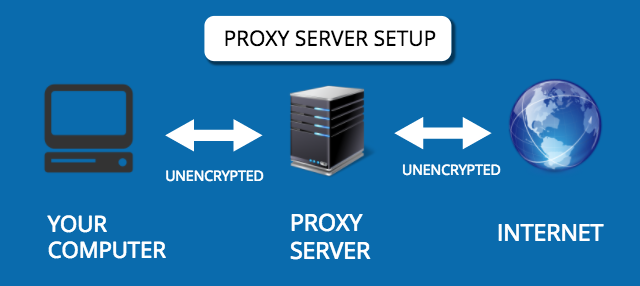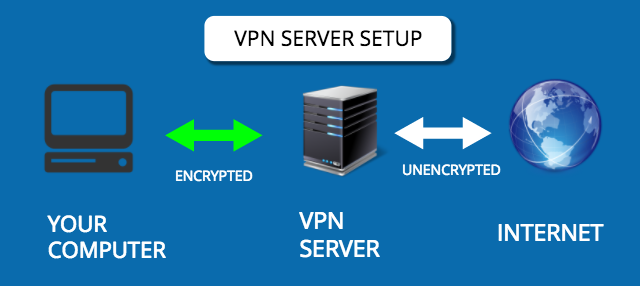Both VPN services and proxy servers are used to reroute the internet traffic and change your IP addresses. But, these services are very different in working and application. A proxy server can be used for bypassing region and IP-based restrictions, but it doesn’t ensure complete safety.
These days the news headlines are filled with the privacy risks posed by our own governments, hackers, malware, and others. Couple these risks with the staggering amount of data being collected by Google, Facebook, NSA, etc. and you’ve got a perfect recipe for a compromised internet experience. That’s why, in such times, use of advanced security mechanisms has become necessary.
Whenever we talk about privacy, we often talk about services like VPN, Tor, proxies, etc. In the past, we’ve already covered the Tor vs VPN topic, so, here I’m going to outline the difference between VPN and Proxies in this VPN vs Proxy Server article.
VPN vs Proxy Server: Explained
Without a doubt, you must be knowing that VPNs and proxies are dedicated to keep you anonymous and enhance the level of privacy in your digital life. In layman terms, both these services connect you to a remote computer. But, VPN and proxies work differently.
The news articles that I mentioned in the beginning outline various risks and privacy concerns. These different scenarios demand different levels of privacy measures. There are some issues that can be easily solved with the help of a proxy server. On the other hand, there are other sensitive tasks that need more advanced measures.
What’s the use of a proxy? When should I use a proxy?
A proxy, also called a proxy server, is a special server that acts as a middleman between your computer/smartphone and a web-based website or service. You can think of it as a web filter that is applied to your web browsers.
Let’s suppose you’ve connected your PC to a proxy server. This will make it appear as if your web activity is coming from the IP address of the proxy–not your PC’s IP address. You can easily setup proxies in your web browser or operating system. You can also specify the addresses of websites that need to be accessed via a proxy server.
So, when should you use a proxy server? Is it recommended for all kinds of internet usage? Well, the answer to this question isn’t very difficult.

A proxy server doesn’t encrypt your traffic, so your communications remain open and unencrypted. By using the right tools and skills, a hacker can still trace you. That’s why a proxy isn’t recommended for tasks that are intended to be completed with high levels of privacy. Compared to VPN, proxy servers are cheaper.
Another thing–a proxy connection is configured on a program-to-program basis. So, you can’t configure the entire PC to connect to a proxy. If you’re thinking to redirect the entire internet connection, proxy servers aren’t a good idea.
You are advised to use a proxy server for using region-restricted websites and services. You can also use a proxy for breaking IP-based restrictions. You can either go for free services like HideMyAss! or choose better and commercial services like BTGuard.
What’s the use of a VPN? When should I use a VPN?
Before talking about the differences, let me tell you a VPN’s similarity with a proxy server. Just like a proxy, a VPN makes your web traffic look like as if it’s originating from a remote location. So, it lets you bypass geographical and ISP-based restrictions. That’s pretty much all about their similarities.

Going one step ahead of a proxy, a VPN passes 100% of your internet traffic via the VPN servers. It’s done be replacing your local ISP routing for all programs. This means that unlike a proxy, a VPN lets you cloak your browsing, email client, torrent downloading, Netflix, etc. at the same time. For exploring VPN’s working in detail, you can read this dedicated article.
Talking about the security arrangements, VPN’s 100% encrypted tunneling encrypts all your traffic and routes it through the VPN servers. You can read further about the benefits of a VPN service in our dedicated article.
Due to these features, a VPN service is often costlier than proxy servers. But, all its privacy benefits shouldn’t stop you from spending $6/month on a good VPN service.
If you’re looking for some recommendations, you can go ahead with the likes of ExpressVPN and IPVanish to get advanced protection.
Did you find this article on VPN vs proxy server helpful? Don’t forget to share your views.
Sources: FOSSBYTES
Hey My Readers and Visitirs If You Like Us or Our Web Site Please Share and Link back To My Site ... Take Care .,.,.

























.png)
0 comments:
Post a Comment